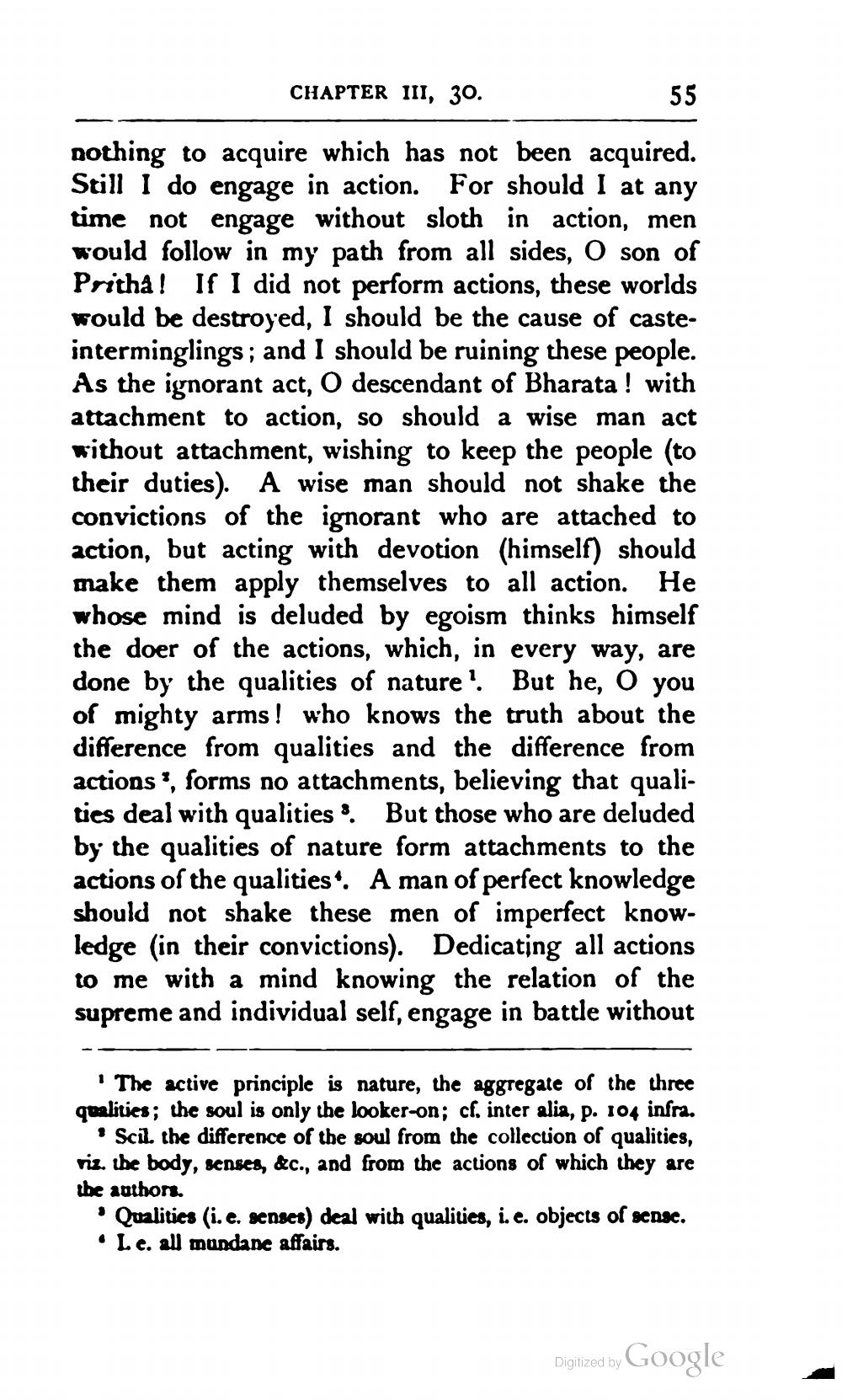________________
CHAPTER III, 30.
nothing to acquire which has not been acquired. Still I do engage in action. For should I at any time not engage without sloth in action, men would follow in my path from all sides, O son of Pritha! If I did not perform actions, these worlds would be destroyed, I should be the cause of casteinterminglings; and I should be ruining these people. As the ignorant act, O descendant of Bharata ! with attachment to action, so should a wise man act without attachment, wishing to keep the people (to their duties). A wise man should not shake the convictions of the ignorant who are attached to action, but acting with devotion (himself) should make them apply themselves to all action. He whose mind is deluded by egoism thinks himself the doer of the actions, which, in every way, are done by the qualities of nature! But he, O you of mighty arms! who knows the truth about the difference from qualities and the difference from actions', forms no attachments, believing that qualities deal with qualities. But those who are deluded by the qualities of nature form attachments to the actions of the qualities'. A man of perfect knowledge should not shake these men of imperfect knowledge (in their convictions). Dedicating all actions to me with a mind knowing the relation of the supreme and individual self, engage in battle without
"The active principle is nature, the aggregate of the three qualities; the soul is only the looker-on; cf, inter alia, p. 104 infra.
• Scil. the difference of the soul from the collection of qualitics, viz. ibe body, scnses, &c., and from the actions of which they are the authon.
Qualities (i. e. senses) deal with qualities, i. e. objects of sense. • Le. all mundane affairs.
Digitized by Google




